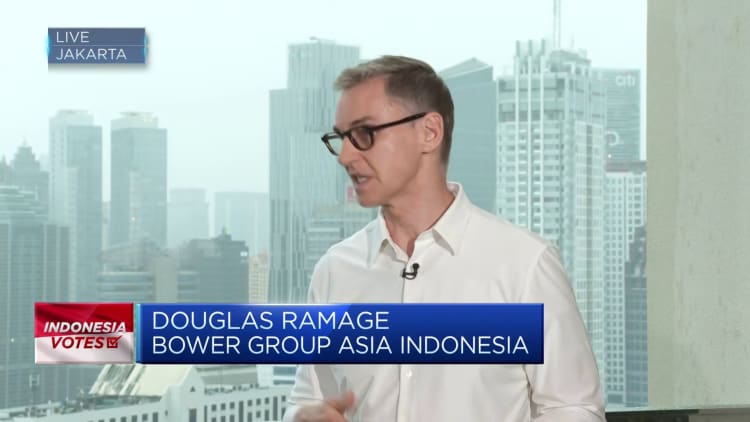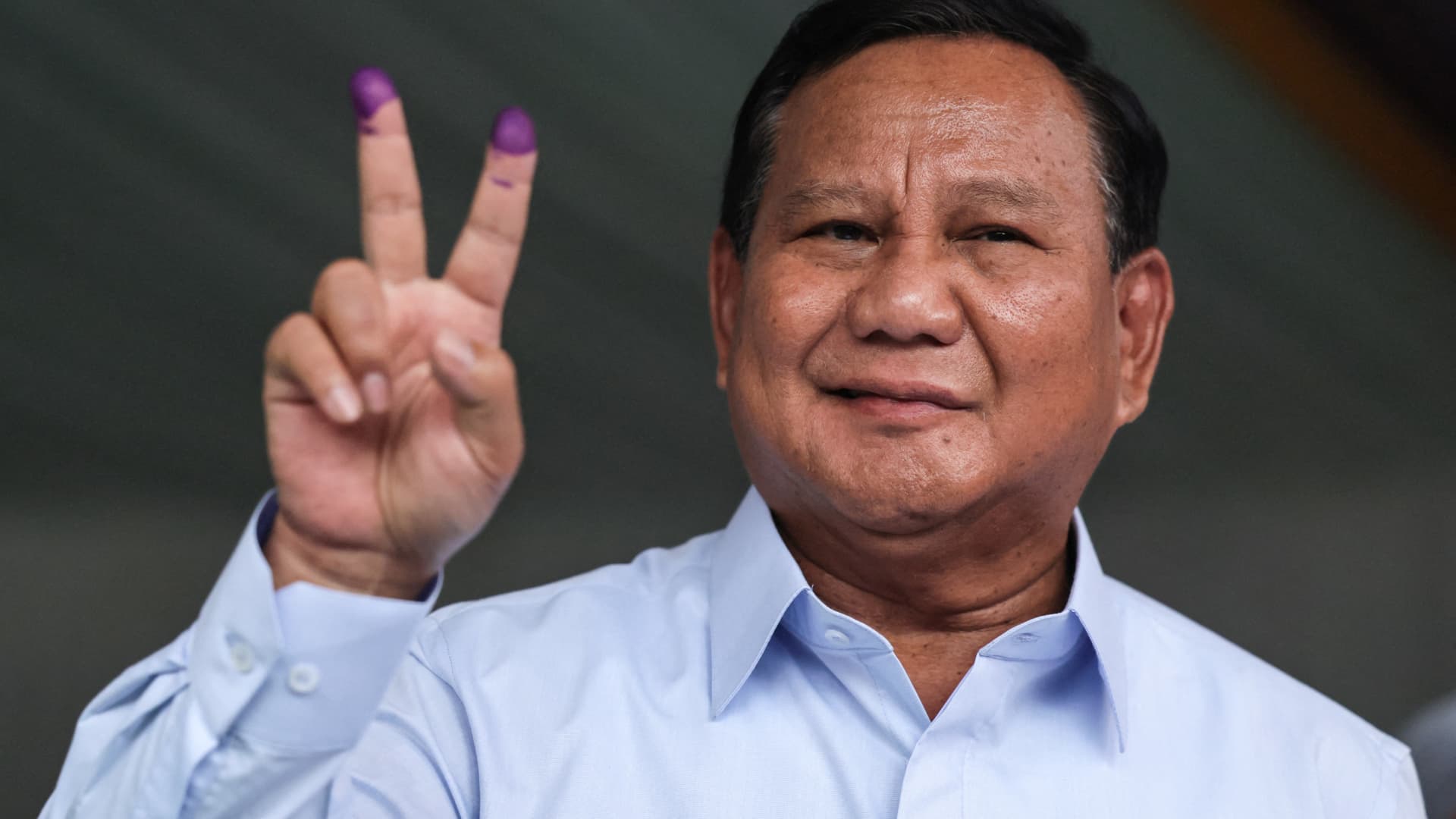Indonesia’s presidential candidate Prabowo Subianto gestures after he cast his ballot to vote in the country’s presidential and legislative elections at a polling station in Bogor on February 14, 2024. Indonesians began voting for a new president on February 14 with Defence Minister Prabowo Subianto the frontrunner to lead Southeast Asia’s biggest economy despite concerns over his human rights record.
Yasuyoshi Chiba | AFP | Getty Images
Indonesia’s Defense Minister Prabowo Subianto, a former army general, appears to have an early unofficial lead in the race to become country’s next president, “quick counts” and exit polls show as voting closes.
Prabowo appears to have won a simple majority of ballots cast in Wednesday’s elections in the world’s third-largest democracy, according to two early independent snap counts based on a sample of votes made available just hours after polls closed Wednesday.
Former Jakarta governor Anies Baswedan placed second, with just under a quarter of the votes, while the former governor of Central Java Ganjar Pranowo was third, according to the snap counts released by independent pollsters Indikator Politik and SMRC.
Official results are not due until at least a month later. The winner will replace President Joko Widodo, popularly known as Jokowi, who is not standing for elections after serving the maximum 10 years.

To win outright, a candidate must obtain more than 50% of the national vote and at least 20% of ballots cast in more than half of the 38 provinces in Indonesia on Wednesday. If no one achieves this, Indonesians across the world’s largest archipelagic state, spanning more than 17,000 islands, will head to a runoff between the two best performing candidates.
More than 200 million people were eligible to vote in only the sixth election in Indonesia since the Southeast Asian archipelago emerged from a military dictatorship under one-time President Suharto in the late 1990s.
The outcome of these elections could go some way in affecting democratization in Indonesia, while determining if Southeast Asia’s largest economy would attain developed status by 2045. It’s also unclear if the new president would derail outgoing President Joko Widodo’s plan to relocate the national capital from Jakarta to Nusantara or curtail ambitions of turning Indonesia into a global hub for battery manufacturing.
— CNBC’s Celestine Francis Xavier contributed to this story.
This is a developing story. Please check back for more updates.

